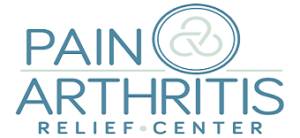Potomac MD Knee Doctor
When to See a Knee Doctor
 Contact the Pain Arthritis Relief Center if you think you may need to see a Potomac MD knee doctor. If you’re experiencing pain or discomfort, one of our physicians may perform a thorough exam to determine the cause and recommend treatment.
Contact the Pain Arthritis Relief Center if you think you may need to see a Potomac MD knee doctor. If you’re experiencing pain or discomfort, one of our physicians may perform a thorough exam to determine the cause and recommend treatment.
It can be difficult to know when it’s time to see a Potomac MD knee doctor. This is especially true when the pain is not sudden and has slowly escalated over time. Chronic pain can also be hard to self-diagnose. The following information about knee ailments may be helpful to know, but we encourage anyone who is experiencing knee pain to call our office.
Self-Care Measures
Minor knee injuries that occur from playing recreational sports or strenuous activities might be managed at home and resolved in a few days. When in doubt, however, contact a Potomac MD knee doctor immediately. These common self-care measures may be effective for dealing with a mild issue:
- Ice or cold compresses. Place ice cubes or a bag of frozen peas wrapped in a towel on your knee twice a day. Fifteen to twenty minutes per session should be sufficient.
- Rest. Even movement is especially painful, reduce or eliminate weight on the knee and keep it horizontal or elevated as much as possible. If there is swelling in addition to the pain, lie horizontally and keep your knee propped up on a pillow. Avoid the activity that caused the knee problem. If you feel the need to use crutches, do so, but call our office you still need them after a day or so.
- Compression. To help reduce swelling, wrap an elastic bandage around your knee. It should fit snugly but not so tight that it causes additional pain or swelling. Unless instructed otherwise by a knee doctor in Potomac MD, remove the compression periodically to allow for adequate blood circulation.
- Take over the counter non-steroidal anti-inflammatory drugs. This includes common ibuprofen medication such as Motrin IB and Advil. Naproxen sodium — Aleve is the most common — is a good alternative, as well as Acetaminophen (commonly known as Tylenol). Take these drugs as instructed on the bottle’s directions, or as directed otherwise by a physician. Do not take any of these drugs if you are allergic to them. Avoid them if you have high blood pressure or if you suffer from kidney ailments. After a knee exam, a Potomac MD knee doctor may decide to prescribe you additional medication.
Promoting Knee Health
Knee pain is a common issue, especially for those who are in their senior years. Overtime, the knees go through plenty of wear and tear as you walk, go up and down stairs, engage in sports, and numerous other physical activities. Along with the natural aging of the knee joints, there are other variables that may make you more vulnerable to developing pain.
For example, excess body weight and minimal muscle strength can exacerbate knee problems. Added weight puts a person at risk for knee pain, as it accelerates deterioration of the joint and raises the odds of osteoarthritis. Other contributing factors could be from repetitive stress or direct trauma to the knee. An injury that isn’t propery treated may worsen, and can develop into osteoarthritis or other complications. To protect the health of your knees, consider adopting lifestyle habits and regimens similar to the following:
- Opting for low-impact exercises that don’t wear on the knee. Activities like swimming and cycling can keep the knee cartilage strong.
- Stretching your muscles often to support a full range of motion. Consider using yoga in the morning as a stretching routine.
- Building the lower and upper leg muscles by doing exercises that focus on glutes, hip flexors, quadriceps, and psoas.
- Maintaining a weight that is recommended for your stature, as extra pounds add more stress to the knees. Even a few pounds makes a big difference, but make sure you are a candidate for safe weight loss before starting any plan.
- Mix up your exercise routine to prevent repetitive stress from being applied to the knee joint, as this can cause cartilage wear or injury.
- Practice sports in a mindful way. Be wary of sports that involve sudden stops, pivots, or starts, such as football, basketball, or tennis. Wear appropriate gear.
- Visit a knee doctor as soon as you experience any kind of knee discomfort. This is particularly true if you have recently injured your knee and have pain, inflammation, tenderness to the touch, redness, or visible deformities.
As mentioned above, it is recommended that anyone dealing with knee symptoms seeks an examination from a reputable knee doctor right away. Too many people wait to see if the knee injury or condition gets better on its own. But when it doesn’t, that time waiting could have been spent visiting a knee doctor and receiving treatment without delay. Knee symptoms that go untreated may turn into a chronic problem that is difficult to undo. We strongly advise speaking with our clinic today so we can advise you further.
When to Call Our Office
If the above solutions are not effective, or your knee injury is more serious, call us immediately to make an appointment with a Potomac knee doctor at Advanced Spine & Wellness Center. Symptoms that can indicate a serious knee injury include the following:
- Major or significant swelling
- Joint tenderness or warmth
- Fever
- Extreme or significant level of pain
- Redness in the area of the knee or surrounding it
- Deformed joint
Our Physicians
At the Pain Arthritis Relief Center our physicians on staff specialize in knee injuries. Whether your knee was injured while playing a sport or twisted in irregular movement, one of our knee doctors may examine your injury and find a treatment. Call us today to schedule an exam with an experienced Potomac MD knee doctor who can make a difference.
Client Review
“Great service! Dr. Bloch went out of his way to help provide care while I was visiting family in the area. ”
Michele C.






